Was it really about 'protecting the interest of the child'?
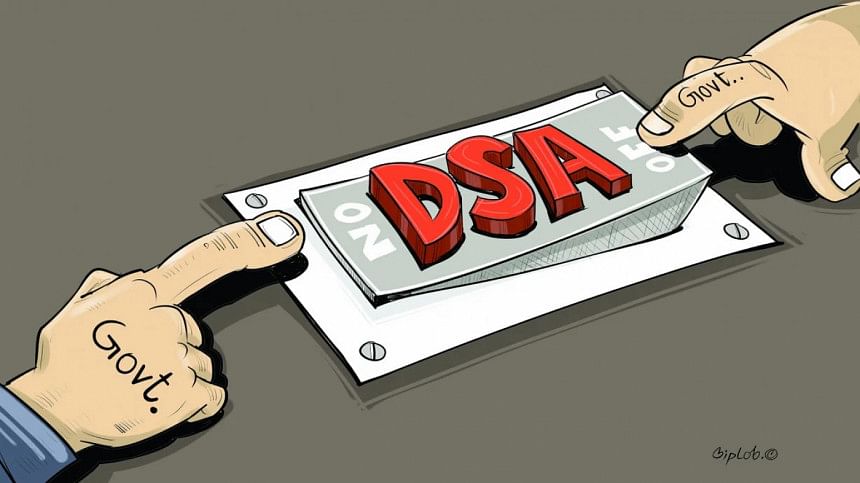
A graphic card carried by Prothom Alo online edition of March 26 has triggered a major controversy resulting in filing of cases under the Digital Security Act (DSA) against the reporter and the editor, among others; incarceration of the concerned reporter for five days, and unleashing of a tirade of criticism and condemnation of the daily for "mocking the country's independence", undermining celebrations of an auspicious day and the achievements of the government and the like. Despite prompt clarification and corrective measures taken by the daily the detractors remained resolute. Soon they began to harp the tune that it was indeed "a heinous case of child exploitation". Needless to say, at no point the quote in question was attributed to the child and thus the charade and the accompanying cacophony appear to be a classic case of targeting a straw man.
The card affair has generated an intense debate among social and political circles and the media. Imbibed by their version of the spirit of independence and the country's image, pro-establishment commentators are largely in agreement with the way the state has handled the matter. Others feel that the state's actions have been antithetical to a democratic order and amount to sharp curtailment of freedom of expression and the media. This group feels that the true spirit of liberation encourages and facilitates debate and discussion on issues that affect people and the media to present the contending perspectives. This group advocates that instead of being paternalistic (by promoting a particular narrative), the state should ensure citizens' full enjoyment of the rights (including that of freedom of expression and the media) that are enshrined in the Constitution of the republic. The Prothom Alo matter has brought into the open the chasm that exists between these two groups.
As the government came under international scrutiny for curtailing freedom of expression, the question of child exploitation became the rallying point. The general secretary of the ruling party and a ranking cabinet minister asserted that "it was not a simple mistake but a criminal offence". He argued that "in any advanced democratic country if such kind of child exploitation had happened, licence of the media would have been cancelled".
The information minister claimed that the report in question violated the United Nations Convention on the Rights of the Child (UNCRC). In a press release issued on April 1, the Ministry of Foreign Affairs (MOFA), denying that the journalist was arrested for reporting on the cost-of-living crisis in Bangladesh, claimed he "was arrested because of child abuse and child exploitation" and for trying "to undermine the independence of Bangladesh on the great Independence Day". The ministry statement asserted that "these acts surely tantamount to punishable crimes" and reminded all that "creating social unrest by undertaking such a fraudulent act is contrary to the spirit of honest journalism". It declared that as a party to the UNCRC, the government would not tolerate any act of exploiting children.
The attempt of the government to invoke child exploitation issue appears to rest on tenuous grounds. Reporter Samsuzzaman Shams was charged under Sections 25(2), 31 and 35 of the DSA in the case lodged in Ramna police station and under those and two additional Sections 26(2) and 29 of the DSA in the case filed in Tejgaon police station. Curiously, none of the five sections deals with child exploitation and abuse. Also, according to the first information report filed with Ramna police station, Shams, editor Matiur Rahman and unnamed others were explicitly accused of using print, online and electronic media for tarnishing the image of the state and it does not make any reference to child exploitation and abuse.
The state's recourse to DSA in dealing with a case of unintended technical lapse of a reputed national daily amply demonstrates the limits of freedom of expression and that of the media in today's Bangladesh. The speeches of senior functionaries of the state and the ruling party and the statements of their acquiescent intellectual and cultural bands highlighting conspiracy of the vested quarters only betray the feeling of siege and alienation that they may be suffering from.
It appears in their haste to stave off growing concerns and criticisms of national and international quarters the ministers, senior functionaries and MOFA officials failed to take into cognisance the charges pressed against the accused and also to corroborate if their revised narrative of the state's intent (of child exploitation and abuse) tallied with such charges. One can therefore deduce that in pursuing the graphic card episode of Prothom Alo the state's claim of championing UNCRC does not hold water. If anything, the unfortunate incident has come in handy for the ruling establishment to send a clear message not only to Prothom Alo, but critical and objective media and free thinkers that the state will not shy away from resorting to the much handy draconian DSA for clamping down on any individual and entity who may appear to be transgressing the nebulous boundaries while exercising their rights as articulated not by the Constitution of the republic, but by those who command the authority of the state.
Dr CR Abrar is an academic with interest in human rights issues.

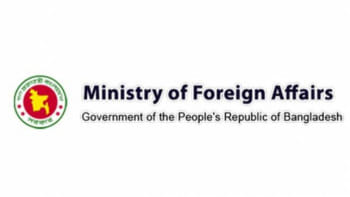
 For all latest news, follow The Daily Star's Google News channel.
For all latest news, follow The Daily Star's Google News channel. 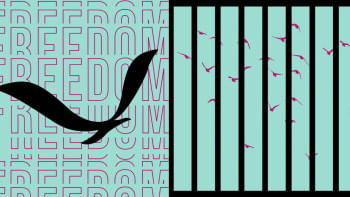
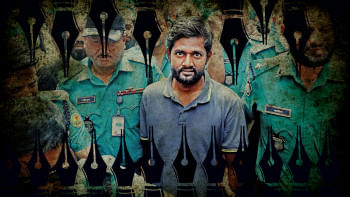
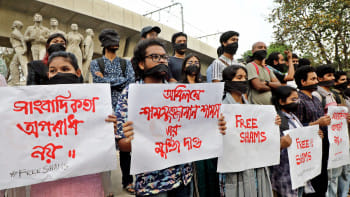



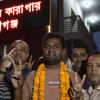
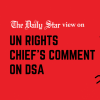



Comments